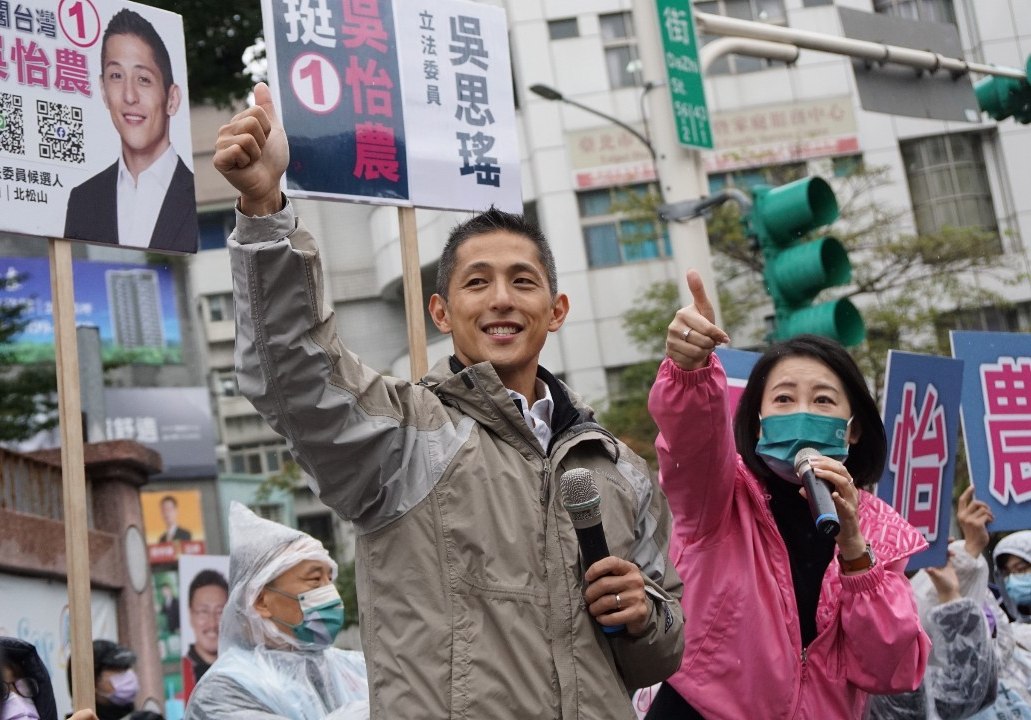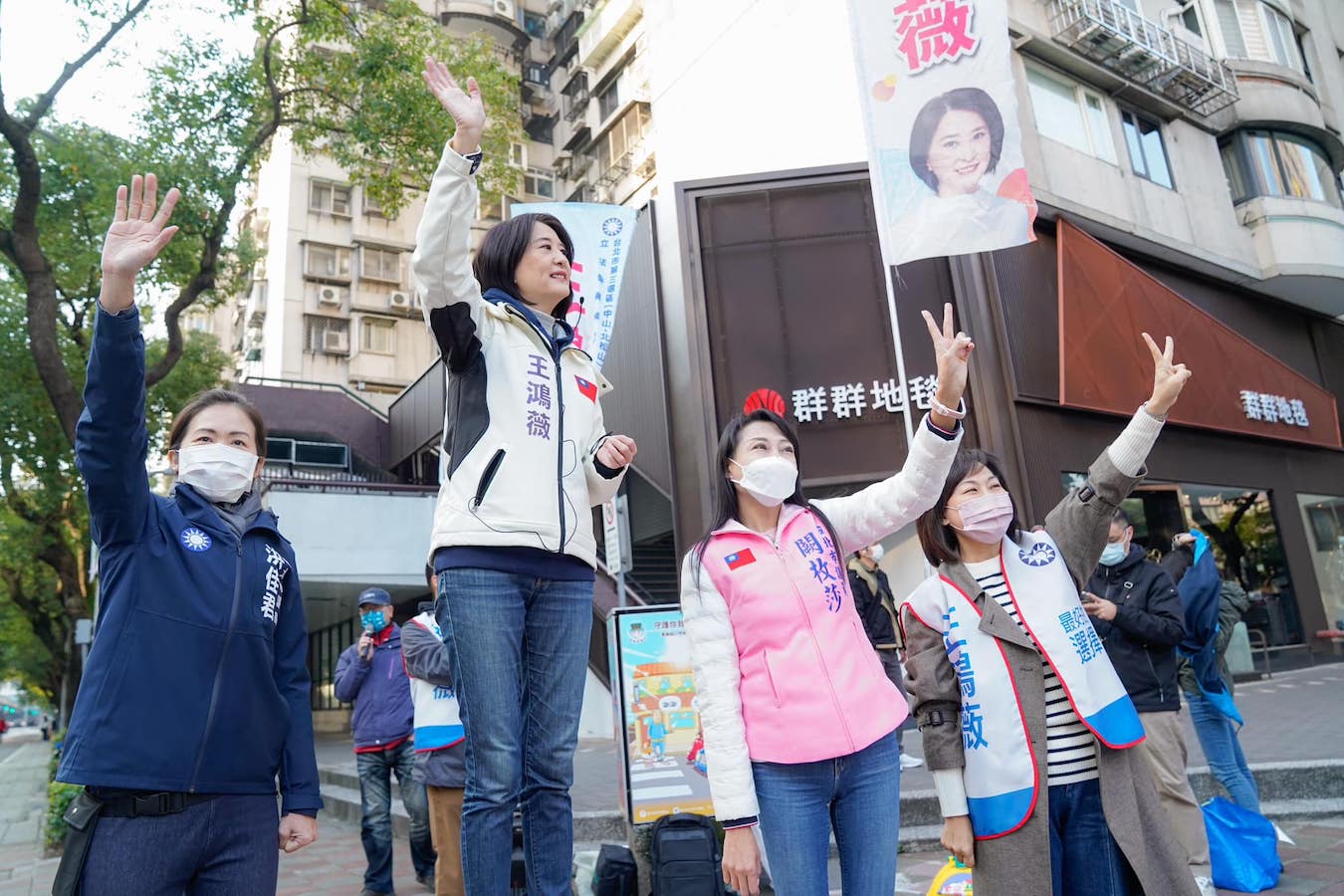by Brian Hioe
語言:
English
Photo Credit: 玄史生/WikiCommons/CC BY-SA 3.0
THE BY-ELECTION to fill the seat formerly occupied by Taipei mayor-elect Chiang Wan-an has taken on an unusual significance with regard to some of the proposals made to date by candidates. For the by-election, the DPP is running Enoch Wu against Wang Hung-wei of the KMT.
In particular, Wu has proposed dismantling the Songshan Airport and instead converting the space that the airport sits on into a park. According to Wu, this new park would be the “lungs” of Taipei, while a third runway at Taoyuan International Airport could handle the air transport which Songshan Airport is currently used for.
Wu’s proposal, however, has seen criticism from Minister of Transportation and Communications Wang Kwo-tsai and former Minister of Defense Feng Shih-kuan, who served from 2016 to 2018. Namely, Songshan Airport plays a key role in transportation between Taiwan and outlying islands, as a cheaper means of travel than flights to Taoyuan International Airport.
 Enoch Wu (center-left) while campaigning. Photo credit: Enoch Wu/Facebook
Enoch Wu (center-left) while campaigning. Photo credit: Enoch Wu/Facebook
Perhaps more significantly, however, concerns were raised about Songshan Airport’s use for defense. The airport, which has one runway, can serve as a back-up runway for fighter jets in the event of war. Likewise, the airport could serve to evacuate key personnel or individuals of other nationalities, which would be more convenient as an airport located in the center of the city compared to the distance that Taoyuan International Airport is from Taipei.
KMT legislator Alex Fai claims the American Institute in Taiwan (AIT), the US’ representative office in Taiwan in the absence of official diplomatic relations, is also opposed to the notion of dismantling Songshan Airport. This would be because in the event of war, Songshan Airport could be used for evacuating American civilians. When asked, however, AIT stated that the right to make such a decision is with Taiwanese authorities. Such claims by Fai may be aimed at encouraging distrust in America, as potentially abandoning Taiwan in wartime. The KMT has increasingly sought to lean into such claims in recent times.
In the event of war, Songshan Airport would be one of China’s key initial targets. China would likely seek to capture Songshan Airport, not only to prevent it from being used for fighter jets, but in order to facilitate its own troop deployment into Taipei. One possibility that is frequently brought up in war scenarios is China deploying paratroopers to capture the airport.
Wu is known for publicly calling for reform of Taiwan’s armed forces, and as well as an advocate for civil defense initiatives. Nevertheless, even as a legislator, it is not probable that Wu has the authority to call for the dismantling of the Songshan Airport individually–particularly since this would also involve stakeholders in Taoyuan if this would involve the expansion of the Taoyuan International Airport. Unsurprisingly, Wu’s opponent, Wang Hung-wei has leaned into these criticisms of his proposals as part of her campaigning, calling for retaining the Songshan Airport.
Similarly, Wang Hung-wei has also called for plans to decommission the Guosheng Nuclear Power Plant and Ma-anshan Nuclear Power Plant to be dropped. The Guosheng Nuclear Power Plant is located in New Taipei and Ma-anshan Nuclear Power Plant is located in Pingtung, as a result of which both plants do not fall within her jurisdiction.
 Wang Hung-wei (center) while campaigning. Photo credit: Wang Hung-wei/Facebook
Wang Hung-wei (center) while campaigning. Photo credit: Wang Hung-wei/Facebook
Wang calling for continued commitment to nuclear power is more broadly in line with pan-Blue advocacy of nuclear energy. Ironically, while defense concerns have been brought up with regards to the Songshan Airport, in Taiwan’s energy debate there has generally been little discussion of security concerns about what sources of energy are most adequate with regards to how to maintain a stable energy grid in the event of a Chinese attack. However, similarly, there have been criticisms of Wang in that local representatives do not dictate national-level policy about Taiwan’s shift toward renewable forms of energy.
At the very least, one notes that while much of the races in nine-in-one elections in late November did not revolve around differences in concrete policy proposals put forward by candidates, Wu and Wang have put forward differing campaign issues in the case of the present race. The race, too, involves some degree of mudslinging, with Wang alleging organized crime ties by Wu. However, it is to be seen what the outcome of the election will be.

